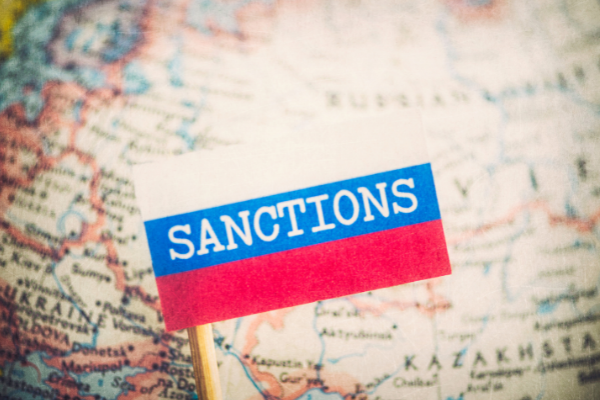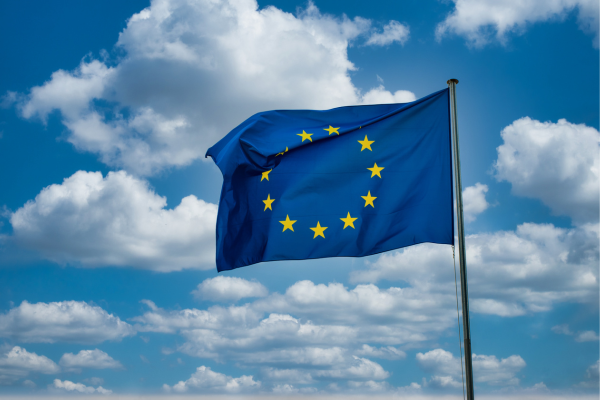BY:
SHARE:

UK exporters may find it challenging to determine clarity as to what exports or actions are not permitted between the UK and Russia. Absolute clarity is given in the regulatory change that is published as a Statutory Instrument, the method the UK implements to alter a regulation.
The Statutory Instruments are published on the Legislation.gov.uk website once the regulation is laid.
There are always explanatory notes at the end of an SI, indicating the intent of the change to the legislation.
From there it is a case of a UK exporting business to understand what restrictions are, and to implement the regulations with due diligence and in a compliant manner
SI 2022 No 123 of 10th Feb: The Russia (Sanctions) (EU Exit) (Amendment) Regulations 2022– Relating to Designated Persons
These Regulations are made under the Sanctions and Anti-Money Laundering Act 2018 (c. 13) to amend the Russia (Sanctions) (EU Exit) Regulations 2019 (S.I. 2019/855) (“the 2019 Regulations”). These Regulations amend the designation criteria in regulation 6 of the 2019 Regulations to specify additional activities for which a person may be designated. Under the amended criteria, an “involved person” now includes a person who is or has been involved in “obtaining a benefit from or supporting the Government of Russia”. Paragraph (4) of regulation 6 defines that term. Paragraph (7) contains relevant definitions of terms used in the amended provision. Read Full Amendment No 123 Here
SI 2022 No 203 1st March: The Russia (Sanctions) (EU Exit) (Amendment) (No. 4) Regulations 2022: Relating to Ports and Shipping
These Regulations are made under the Sanctions and Anti-Money Laundering Act 2018 (c. 13) to amend the Russia (Sanctions) (EU Exit) Regulations 2019 (S.I. 2019/855) (“the 2019 Regulations”). These Regulations provide for new shipping sanctions measures in relation to Russia. The Regulations prohibit Russian ships, and other ships specified by the Secretary of State, from entering ports in the United Kingdom. There is a notification and publicity requirement where the specification power is used. The Regulations provide the Secretary of State with a power to control the movement of Russian ships or specified ships by requiring them to leave or enter specified ports, proceed to a specified place or remain where they are. The Regulations also confer powers on the Secretary of State and harbour authorities to detain Russian ships or specified ships at ports or anchorages. The registration of ships on the UK Ship Register is prohibited where they are owned, controlled, chartered or operated by a designated person or persons connected with Russia, or where they are a specified ship. An exception from the prohibition on port entry is provided for where access or entry is needed by the ship in case of emergency. The Regulations make it a criminal offence to contravene any of the prohibitions in these Regulations. A consequential amendment is also made to the Merchant Shipping (Registration of Ships) Regulations 1993 (S.I. 1993/3138) so that the Registrar General of Shipping and Seamen can refuse to register sanctioned ships and can terminate the registration of sanctioned ships on receipt of a termination direction from the Secretary of State. Read Full Amendment No 203 Here
SI 2022 195 The Russia (Sanctions) (EU Exit) (Amendment) (No. 3) Regulations 2022: Relating to Military, Dual Use and Critical Industry Goods
These Regulations are made under the Sanctions and Anti-Money Laundering Act 2018 (c. 13) to amend the Russia (Sanctions) (EU Exit) Regulations 2019 (S.I. 2019/855) (“the 2019 Regulations”). These Regulations provide for new trade sanctions measures in relation to Russia. Prohibitions on the export, supply and delivery and making available of military goods are extended to include dual-use goods and critical-industry goods. Prohibitions on the making available and transfer of military technology are extended to include dual-use technology and critical-industry technology. Related prohibitions on the provision of technical assistance, financial services, funds and brokering services are also extended in relation to dual-use goods and technology and critical-industry goods and technology. These new prohibitions replace prohibitions relating to dual-use goods and dual-use technology for named persons, and for military use. Transitional provision is made in relation to licences issued to authorise trade within the scope of the replaced prohibitions. A number of exceptions from the trade prohibitions on critical-industry goods and technology are provided for, in relation to personal items and diplomatic missions, consular posts and international organisations, the movement of aircraft and vessels, consumer communication devices and software updates, and emergencies. Read Full Amendment No 195 Here
SI 2022 No 205 The Russia (Sanctions) (EU Exit) (Amendment) (No. 5) Regulations 2022: Relating to Financial Services
These Regulations are made under the Sanctions and Anti-Money Laundering Act 2018 (c. 13) to amend the Russia (Sanctions) (EU Exit) Regulations 2019 (S.I. 2019/855) (“the 2019 Regulations”). The Regulations add new financial sanctions to Part 3 (Finance) of the 2019 Regulations. The amendments insert a restriction on the provision of financial services for the purposes of foreign exchange reserve and asset management involving the Central Bank of the Russian Federation, the National Wealth Fund of the Russian Federation, the Ministry of Finance of the Russian Federation, or persons owned or controlled by, or acting on behalf of, or at the direction of, the same. The Regulations insert licensing grounds relating to these new provisions. Read Full Amendment No 205 Here
SI 2022 No 241 The Russia (Sanctions) (EU Exit) (Amendment) (No. 6) Regulations 2022
These Regulations are made under the Sanctions and Anti-Money Laundering Act 2018 (c. 13) to amend the Russia (Sanctions) (EU Exit) (Amendment) Regulations 2019 (S.I. 2019/855) (“the 2019 Regulations”). These Regulations provide for new aviation and trade sanctions measures in relation to Russia. The Regulations prohibit Russian aircraft from overflying or landing in the United Kingdom. The Regulations also confer powers on the Secretary of State, air traffic control and airport operators to issue directions for the purpose of preventing Russian aircraft from entering the airspace over the United Kingdom or from landing in the United Kingdom, or requiring aircraft to leave the airspace over the United Kingdom. The Regulations also confer powers on the CAA to refuse, suspend or revoke permissions in respect of Russian aircraft. The registration of aircraft on the register kept by the CAA is prohibited where they are owned, operated or chartered by demise by a designated person. An exception from the prohibitions on landing and overflight is provided for where failing to land would endanger the lives of persons on board or the safety of the aircraft. The Regulations make it a criminal offence to contravene any of the prohibitions or fail to comply with a direction in these Regulations. The Regulations also amend the trade measures in the 2019 Regulations to add new categories of aviation and space goods and technology, based on items falling within chapter 88 of the Tariff of the United Kingdom. The existing prohibitions applying to restricted goods and restricted technology are extended to these goods and technology, as well as a new prohibition on insurance and reinsurance services. Existing exceptions in relation to aircraft and vessels, for emergencies in certain cases, for authorised conduct and for purposes of national security or prevention of serious crime are applied to the new prohibition. Parts 4, 7 and 9 also amend the 2019 Regulations and the Merchant Shipping (Registration of Ships) Regulations 1993 (S.I. 1993/3138) to correct certain omissions and errors in the Russia (Sanctions) (EU Exit) (Amendment) (No. 4) Regulations 2022 (S.I. 2022/203). Read Full Amendment No 241 Here
NTE 2022/05: General Trade Licence Russia sanctions aviation insurance, merchant shipping registration
Link below
OneCall™ Email assistance as and when required; A one-call solution for all your import, export and customs enquiries. Export help. Import help. Customs help.
Stay informed about customs and international trade matters by subscribing to our OneCall™ service. This comprehensive offering includes a dedicated email helpline for support, timely practical updates direct to your inbox (Did You Know?), monthly UK Customs & Trade Briefings and access to an interactive members' area with an exclusive community for our subscribers.
International Trade Updates & Spotlight Newsletter
Subscribe to our free information emails covering international trade topics...









